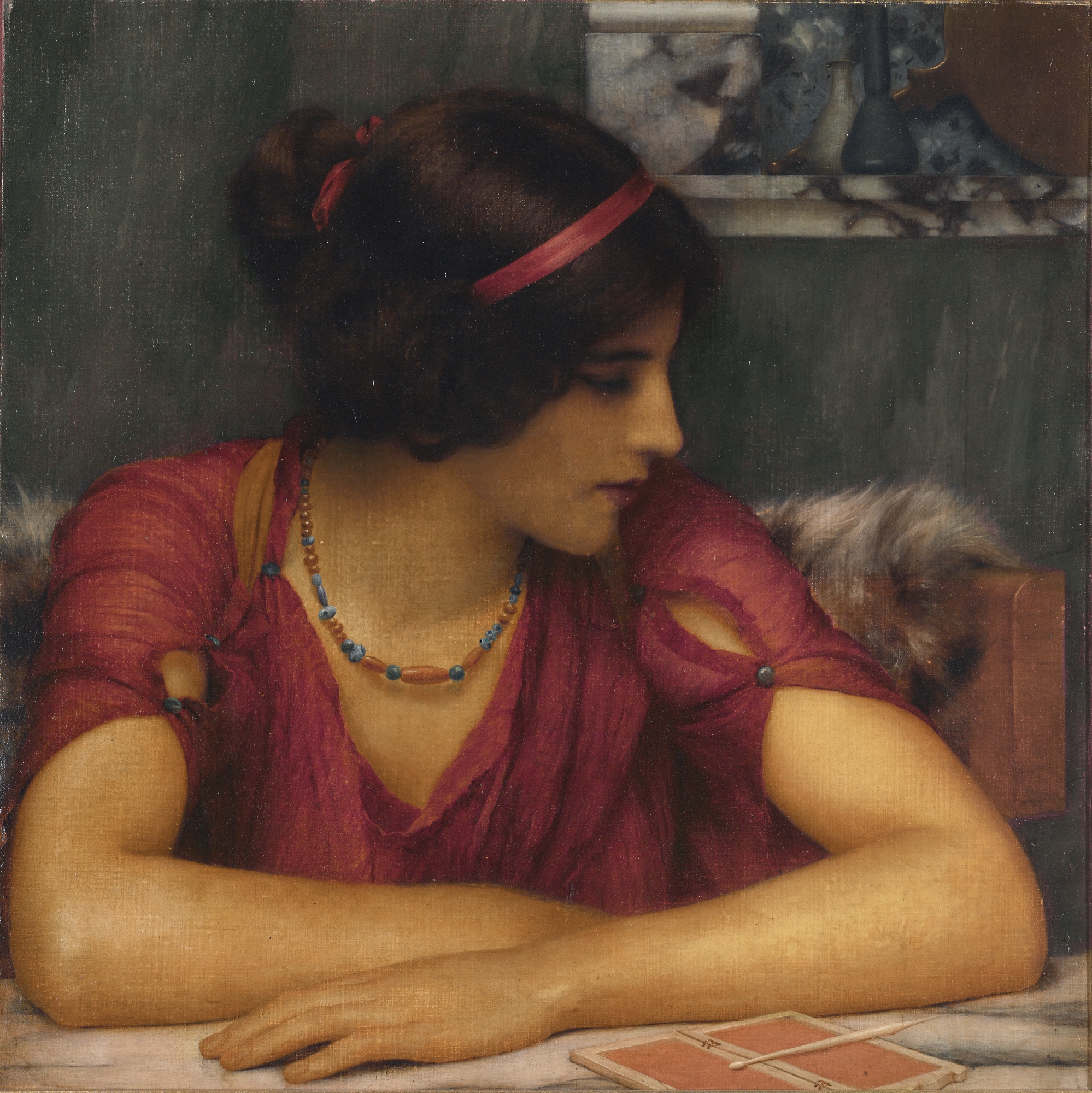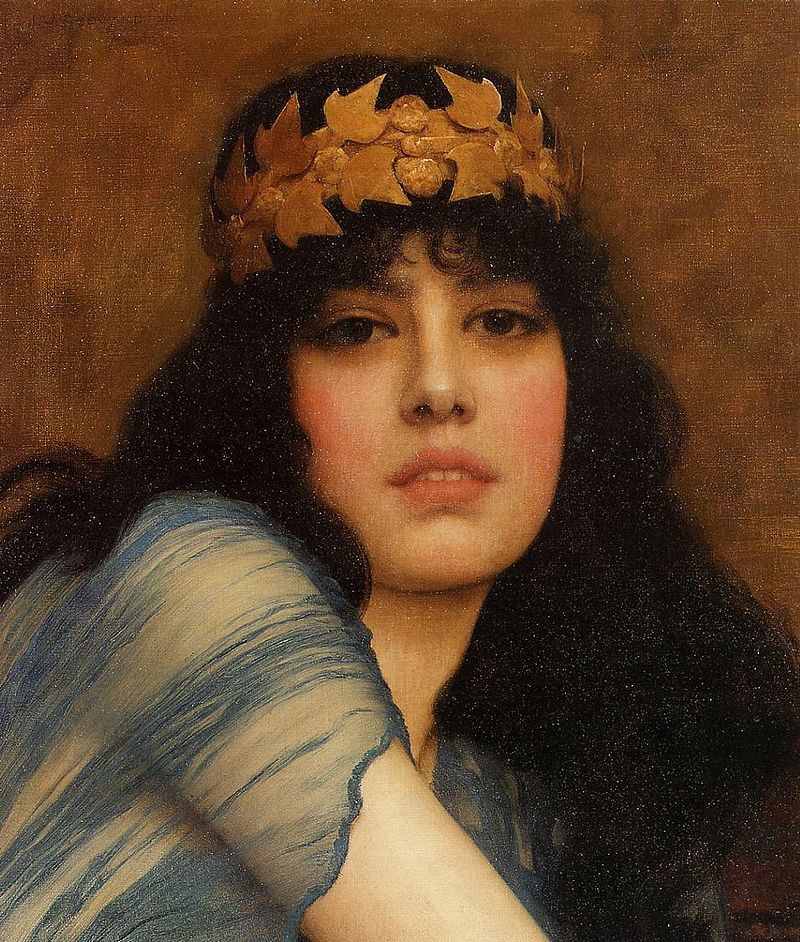
John William Godward (1861-1922) was an English Neoclassical painter known for his highly detailed and meticulously rendered works that often depicted scenes from ancient Greece and Rome. He was part of the late 19th and early 20th-century art movement known as the Neoclassical Revival or Neoclassical School.
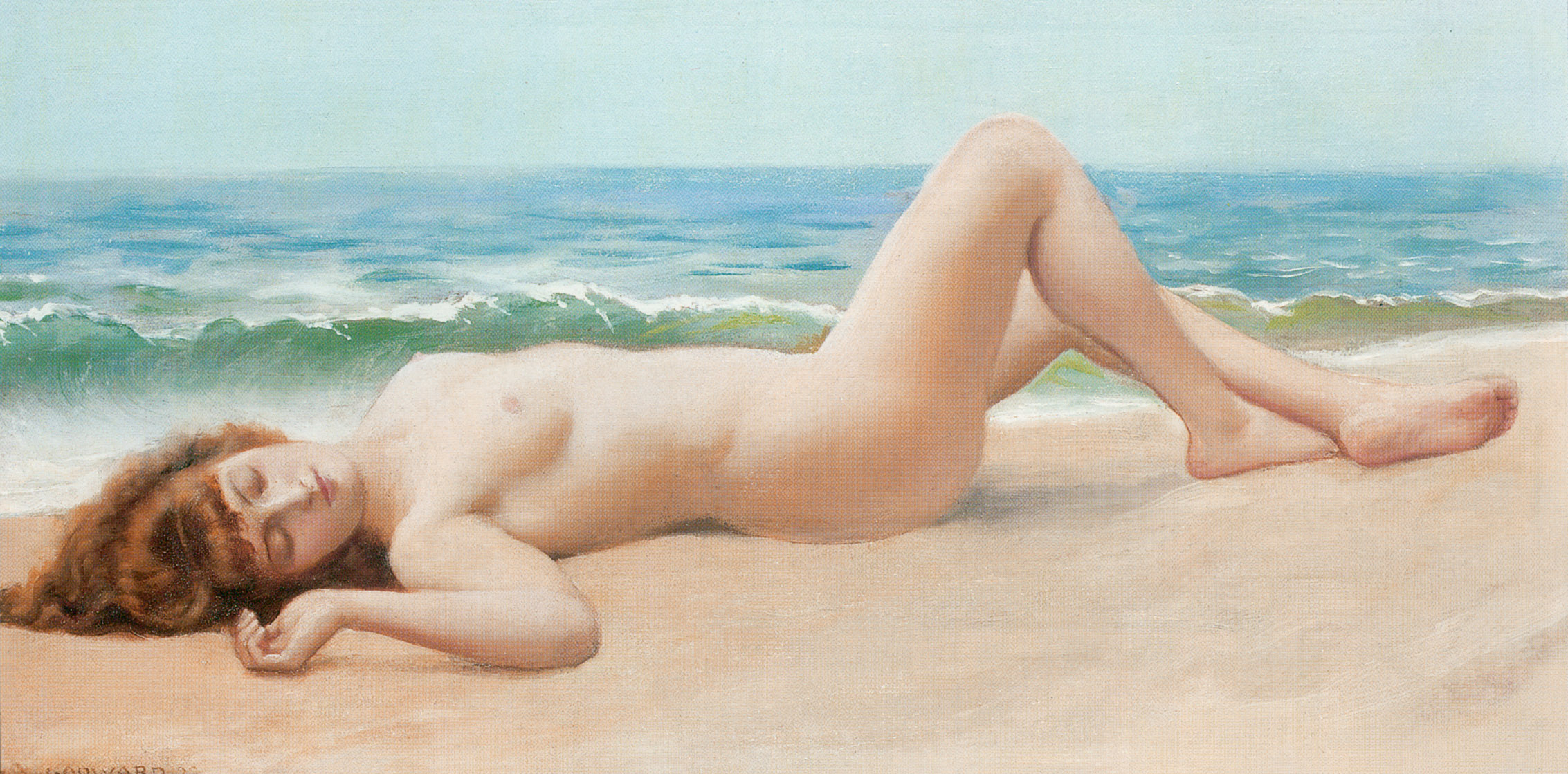
Early Life and Education:
- John William Godward was born on August 9, 1861, in Wimbledon, London, England.
- He displayed an early talent for art and began his formal training at the St. John’s Wood School of Art in London.
- His early work showed a clear affinity for the classical and neoclassical styles.
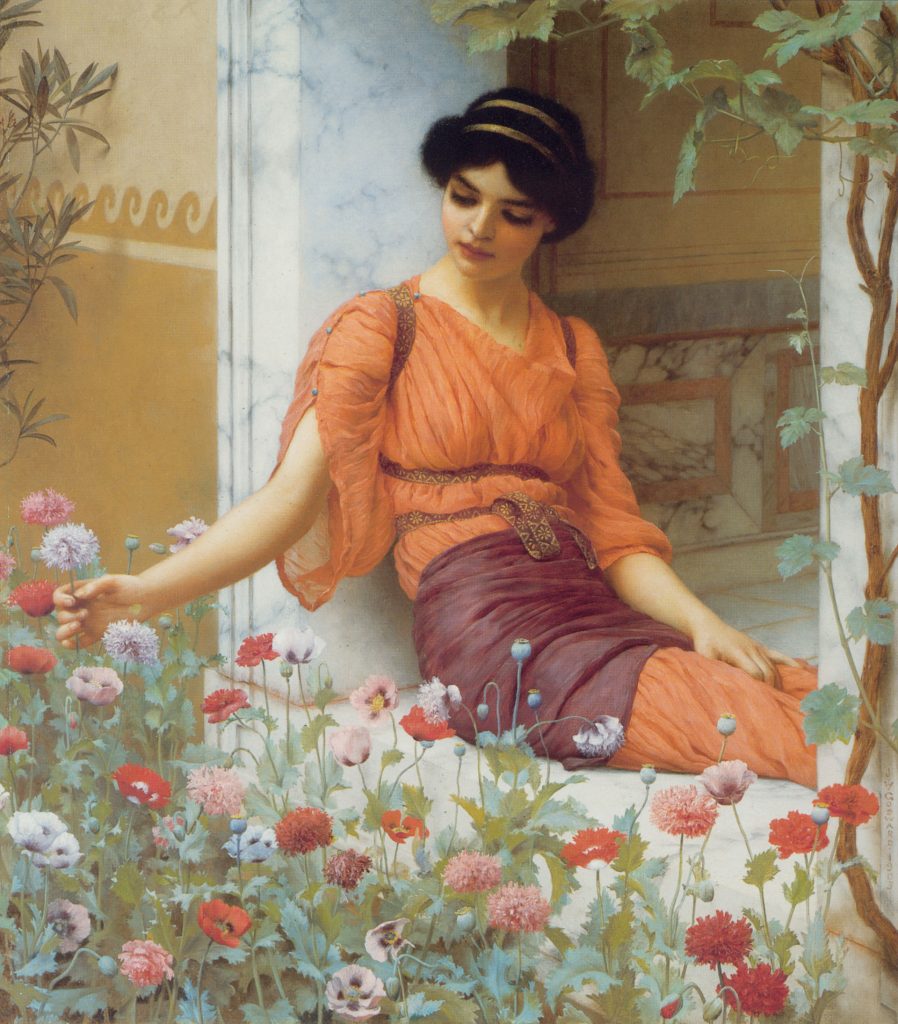
Artistic Style and Influences:
- Godward’s work was heavily influenced by the neoclassical painters of the 19th century, especially Lawrence Alma-Tadema and Sir Lawrence Alma-Tadema.
- He became known for his exquisite attention to detail, mastery of color and light, and his ability to capture the idealized beauty of the female form.
- His subjects were often young women in classical drapery, situated in richly decorated settings reminiscent of ancient Greece or Rome.
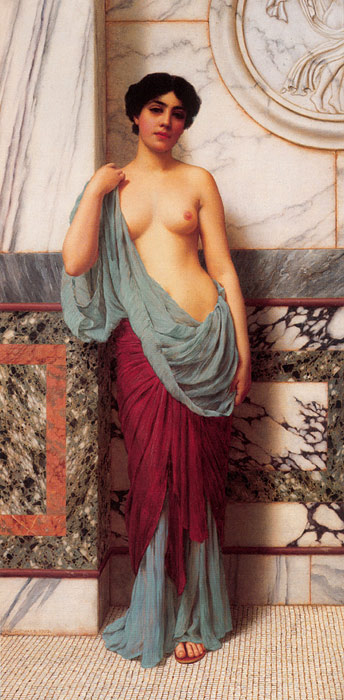
Exhibitions and Recognition:
- Godward began exhibiting his work at the Royal Academy in London in 1887 and continued to do so throughout his career.
- He gained recognition for his contributions to the Neoclassical Revival, and his works were popular among collectors during his time.
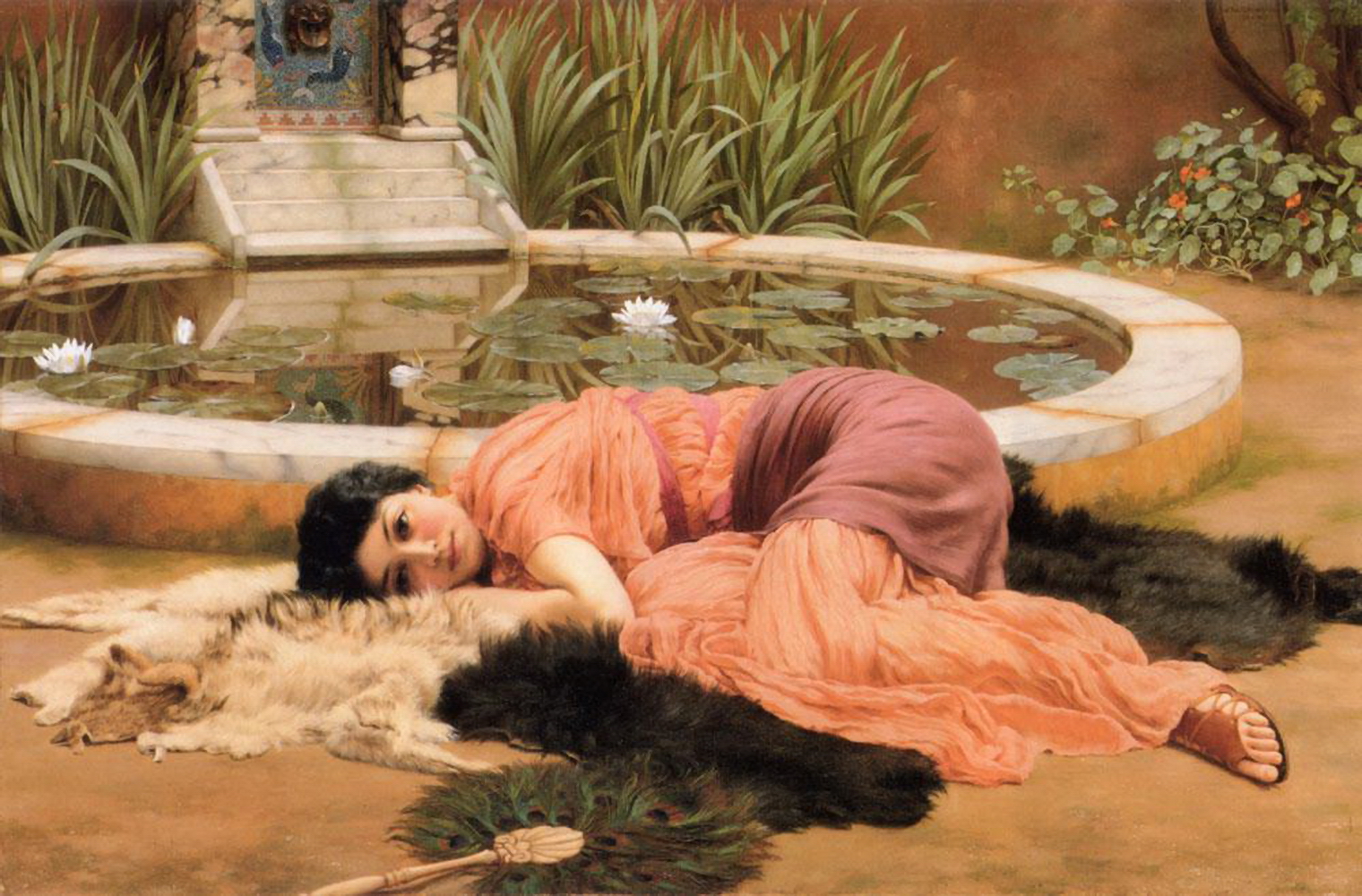
Subjects and Themes:
- The majority of Godward’s paintings featured classical themes and settings. He often painted scenes of women in repose, engaged in leisurely activities like reading, playing musical instruments, or adorning themselves.
- His compositions were marked by a sense of tranquility and an emphasis on aesthetic beauty.
- Godward was known for his careful research and attention to historical accuracy when depicting clothing, architecture, and other details of ancient life.
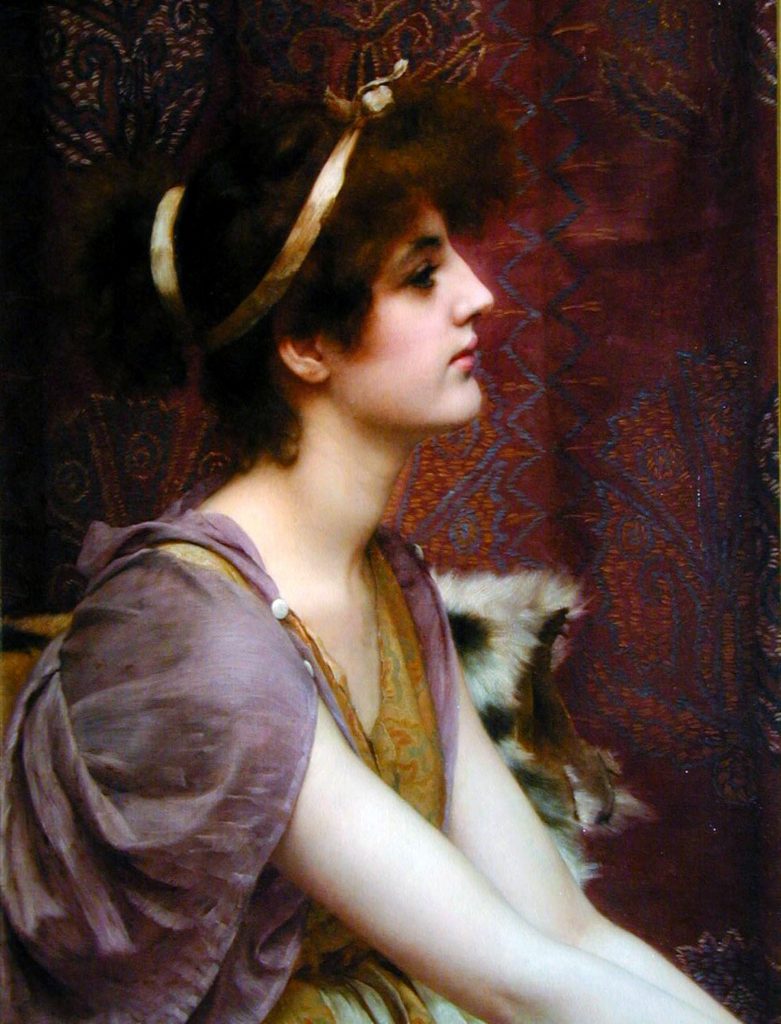
Later Life and Legacy:
- Despite the popularity of his works during his lifetime, Godward faced challenges as the art world moved towards modernism in the early 20th century.
- Feeling disillusioned by the changing tastes in art and the decline in the popularity of his style, he tragically took his own life in 1922.
- Following his death, Godward’s work fell into relative obscurity as modernist art movements gained prominence. However, there has been renewed interest in his work in recent years, and his paintings are once again appreciated for their technical skill and the idealized beauty they convey.
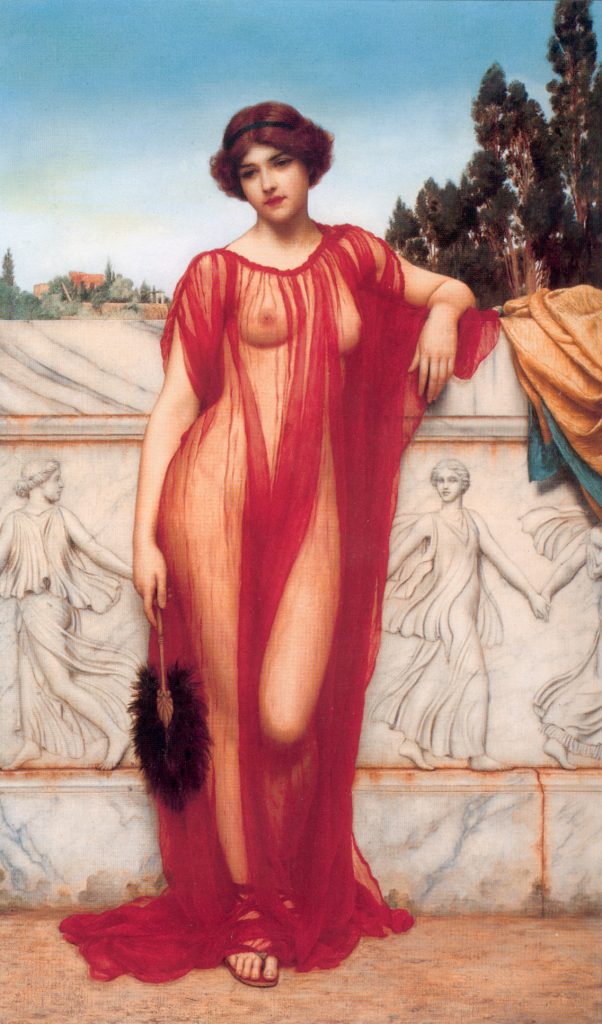
John William Godward’s paintings are celebrated for their meticulous craftsmanship and their evocation of the ideals of classical beauty and serenity. His works remain an important part of the Neoclassical tradition and continue to be admired for their aesthetic and historical qualities.
